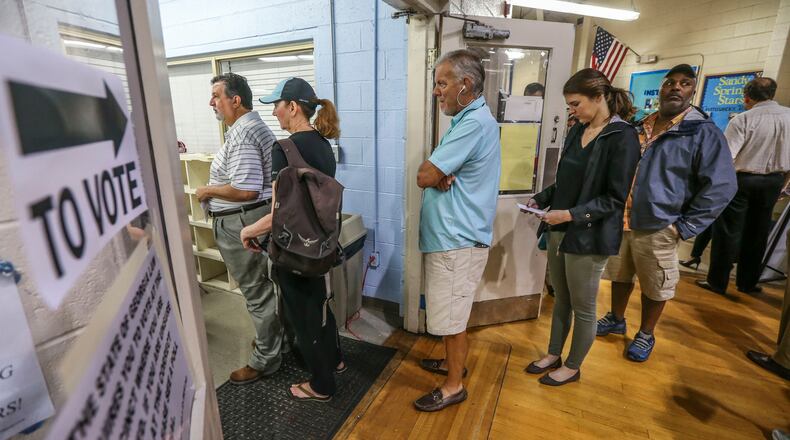Georgia plans to provide publicly available voter information to President Donald Trump's commission on election integrity, but will not share information considered private under state law such as registered voters' driver's license numbers or Social Security numbers.
The decision, which has been met with concern from civil and voting rights groups, comes as the commission sent letters this week to all 50 states requesting voter-roll data, including the name, address, date of birth, party affiliation, last four Social Security number digits and voting history.
Officials from states including California, Kentucky and Virginia have already announced their intentions to refuse the request, citing concerns over how the information would be used. Others, including from Connecticut, have said they would share publicly available information but nothing more.
Trump formed the commission in May to investigate alleged acts of voter fraud after he made unsubstantiated claims of “millions” of illegal votes during last year’s presidential election.
Officials from the Georgia Secretary of State's Office have repeatedly said there were no illegal votes in Georgia.
Georgia lawmakers in 2005 passed one of the nation's first voter ID laws, requiring people to show photo identification at their polling location. State officials — who won court approval to implement the law in 2007 — have called it a key component to preventing fraud at the polls, and it is strongly supported by the state's conservative GOP leadership, including Georgia Secretary of State Brian Kemp.
About the Author
Keep Reading
The Latest
Featured

